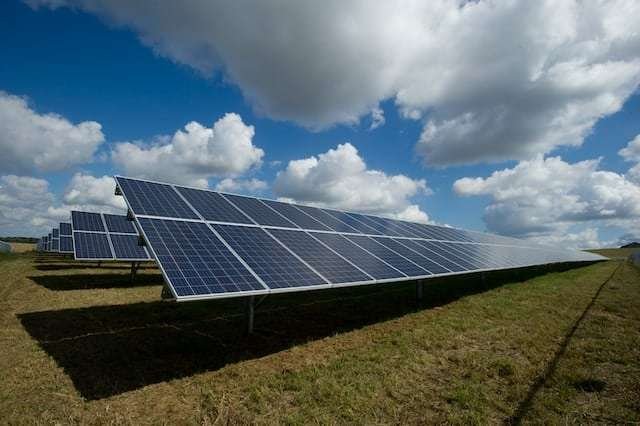With the growing concern for the environment and the rising cost of electricity, many businesses are turning to renewable energy sources to reduce their carbon footprint and save on energy costs. One of the most popular options is solar energy, mainly commercial solar panel systems.
What Are Commercial Solar Panel Systems?
Commercial solar panel systems are a collection of solar panels installed on the roofs or grounds of commercial buildings to generate electricity. These systems convert sunlight into electricity, which can be used to power the building or sold back to the grid.
Components of a Commercial Solar Panel System
- Solar Panels: These are the most visible part of the system. They are made of photovoltaic cells that convert sunlight into electricity.
- Inverter: This device converts the direct current (DC) electricity generated by the solar panels into alternating current (AC) electricity, which most appliances use and can be fed back into the grid.
- Mounting System: This structure holds the solar panels in place. It can be installed on the roof, ground, or poles.
- Monitoring System: This allows you to monitor the performance of your solar panel system in real-time.
- Battery Storage: This is optional but recommended. It stores excess electricity generated during the day for use at night or during cloudy periods.
Benefits of Commercial Solar Panel Systems:
Cost Savings:
One of the main benefits of commercial solar panel systems is the cost savings. Solar energy is accessible once the system is installed. This means businesses can drastically reduce their electricity bills by generating their power. Additionally, some areas offer feed-in tariffs or net metering programs that allow companies to sell excess electricity back to the grid, providing an additional revenue stream.
Environmentally Friendly:
Solar energy is a clean, renewable energy source that does not emit harmful carbon dioxide or other pollutants. A typical commercial solar panel system could save tons of carbon dioxide emitted into the atmosphere over its lifetime.
Low Maintenance:
Once installed, commercial solar panel systems require very little maintenance, usually just a regular cleaning and an annual check by a technician.
Increases Property Value:
Studies have shown that properties equipped with solar energy systems have higher property values and sell more quickly than non-solar properties.
Government Incentives:
Many governments offer financial incentives to encourage businesses to install solar panel systems. These may include tax credits, rebates, and feed-in tariffs for excess electricity generated.
Considerations Before Installing Commercial Solar Panel Systems:
Location:
The sunlight your location receives will significantly impact your solar panel system’s efficiency and electricity output. It is essential to assess the solar potential of your site before installation.
Roof Condition and Space:
The condition and space available on your roof will also impact the feasibility of installing a solar panel system. The top must be in good condition and have enough space to accommodate the solar panels.
Energy Usage:
It is essential to assess your business’s energy usage to determine the size of the solar panel system required. A detailed energy audit can provide this information.
Cost:
The cost of installing a commercial solar panel system can be significant. However, it is essential to consider the long-term benefits and savings and any available government incentives.
Local Regulations and Permits:
Local regulations and permits may impact the installation of a solar panel system. Checking with local authorities and obtaining permits before starting the building is essential.
How to Choose a Commercial Solar Panel System?
Determine Your Energy Needs:
Determining your energy needs is the first step in choosing a commercial solar panel system. Conducting an energy audit can provide a detailed analysis of your energy consumption and help you determine the size of the solar panel system required.
Choose the Type of Solar Panels:
There are three main types of solar panels: monocrystalline, polycrystalline, and thin-film. Each has advantages and disadvantages; the best choice depends on your needs and budget.
Choose the Mounting System:
The mounting system holds the solar panels in place. Several mounting systems are available, including roof-mounted, ground-mounted, and pole-mounted systems. The best choice will depend on your specific needs and the open space.
Choose the Inverter:
The inverter converts the DC electricity generated by the solar panels into AC electricity. There are two main types of inverters: string inverters and microinverters. String inverters are the most common and cost-effective option, while microinverters are more efficient but also more expensive.
Choose the Battery Storage:
While not strictly necessary, battery storage is recommended for commercial solar panel systems. This allows you to store excess electricity generated during the day for use at night or during cloudy periods.
Conclusion:
Commercial solar panel systems offer many benefits, including cost savings, environmental benefits, low maintenance, and increased property value. However, several important considerations must be remembered, including location, roof condition and space, energy usage, cost, and local regulations and permits. It is essential to carefully assess your needs and consult a professional to choose the best system for your business.









